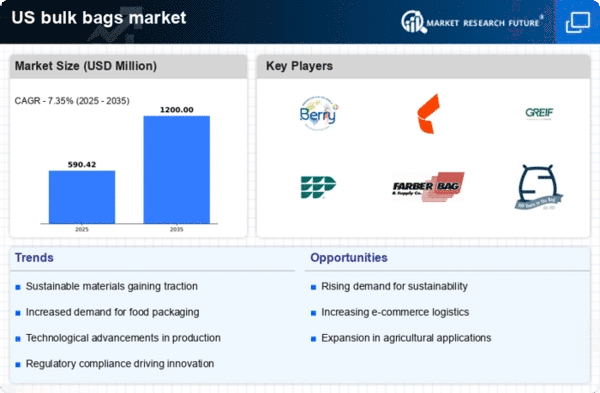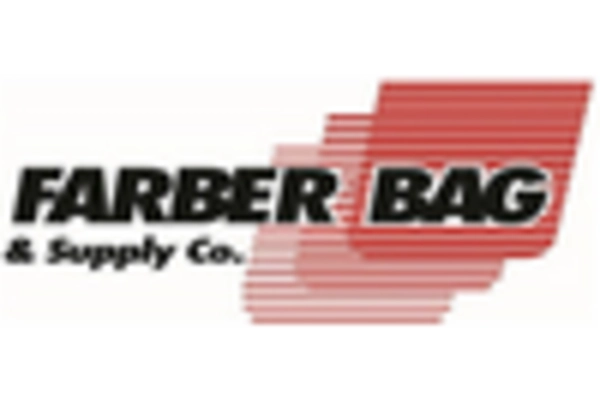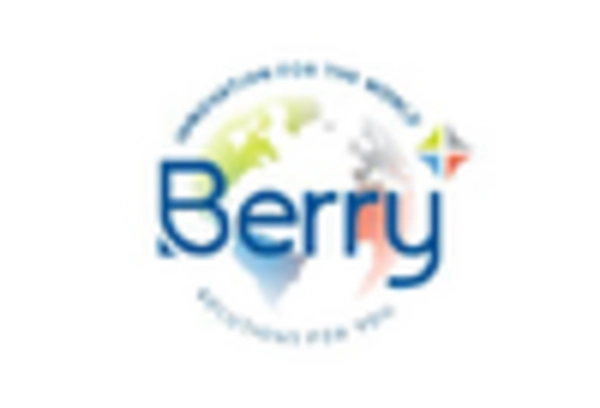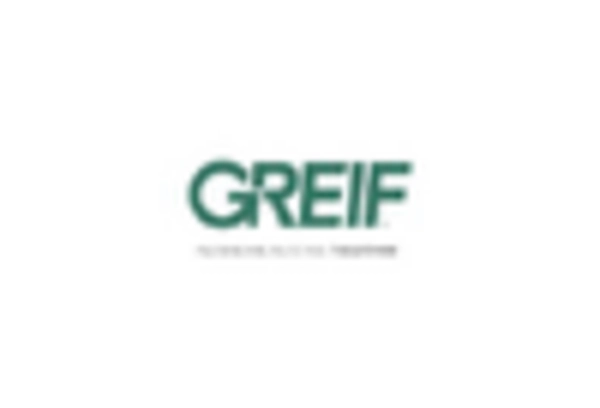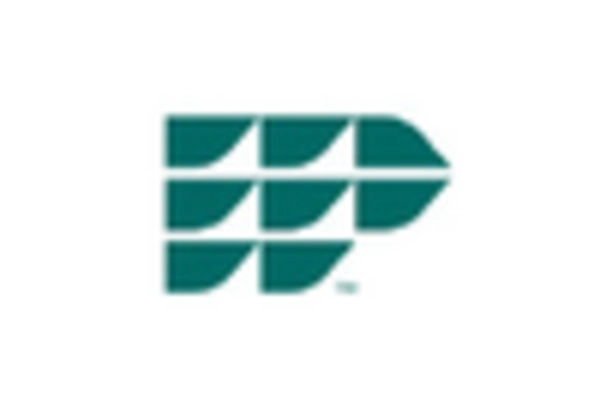Growth in Construction Activities
The construction industry is experiencing a resurgence, which is likely to positively impact the bulk bags market. With an expected growth rate of around 4% in the construction sector in 2025, the demand for bulk bags for transporting materials such as sand, gravel, and cement is anticipated to increase. Bulk bags provide a practical solution for handling large volumes of construction materials, offering durability and ease of use. Additionally, the trend towards modular construction and prefabrication may further drive the need for bulk bags, as these methods often require efficient material handling solutions. Consequently, the bulk bags market is poised to capitalize on the ongoing expansion in construction activities.
Rising Demand from Agriculture Sector
The agriculture sector is a significant driver for the bulk bags market. As farmers increasingly seek efficient and cost-effective solutions for transporting and storing agricultural products, the demand for bulk bags is likely to rise. In 2025, the agricultural industry in the US is projected to grow by approximately 3.5%, which may lead to an increased need for bulk packaging solutions. Bulk bags offer advantages such as reduced handling costs and improved storage capabilities, making them an attractive option for farmers. Furthermore, the trend towards organic farming and the need for sustainable packaging solutions could further bolster the bulk bags market. As the agriculture sector continues to evolve, the bulk bags market appears well-positioned to benefit from these developments.
Emergence of E-commerce and Online Retail
The rise of e-commerce and online retail is reshaping the landscape of packaging and logistics, thereby influencing the bulk bags market. As online shopping continues to gain traction, businesses are increasingly looking for efficient packaging solutions to meet consumer demands. Bulk bags offer a versatile option for shipping a variety of products, from food items to industrial materials. In 2025, e-commerce sales in the US are projected to reach approximately $1 trillion, which may drive the need for bulk packaging solutions. The bulk bags market appears to be well-positioned to cater to the evolving needs of e-commerce businesses, providing them with effective and sustainable packaging options.
Increased Focus on Supply Chain Efficiency
Supply chain efficiency is becoming increasingly critical for businesses across various sectors, including manufacturing and retail. The bulk bags market is likely to benefit from this trend as companies seek to optimize their logistics and reduce costs. Bulk bags facilitate easier handling and transportation of goods, which can lead to improved operational efficiency. In 2025, it is estimated that logistics costs in the US will account for approximately 8% of the GDP, highlighting the importance of effective supply chain management. As businesses strive to enhance their supply chain processes, the demand for bulk bags is expected to grow, reflecting a shift towards more efficient packaging solutions.
Technological Innovations in Manufacturing
Technological advancements in manufacturing processes are likely to play a crucial role in shaping the bulk bags market. Innovations such as automation and improved material science are enhancing the production efficiency and quality of bulk bags. In 2025, the manufacturing sector in the US is expected to grow by around 3%, which may lead to increased investments in advanced manufacturing technologies. These innovations can result in the production of lighter, stronger, and more sustainable bulk bags, aligning with the growing demand for eco-friendly packaging solutions. As manufacturers adopt new technologies, the bulk bags market is expected to benefit from enhanced product offerings and increased market competitiveness.


